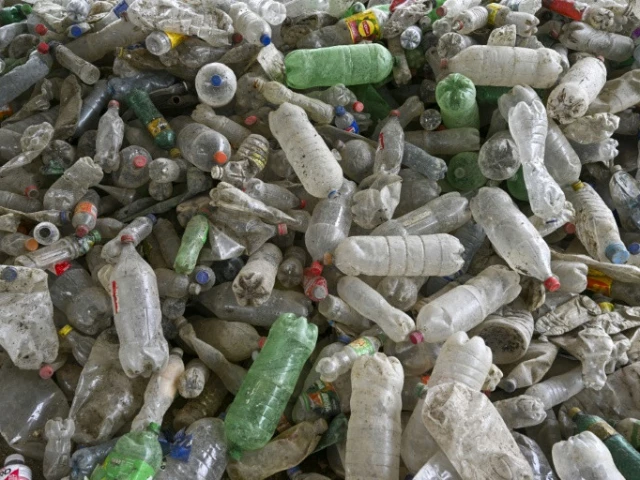The Ongoing Battle Against Plastic Pollution: What Happened in Geneva?
The recent talks aimed at establishing a global treaty to combat plastic pollution ended in disappointment as negotiators from 185 nations failed to reach a consensus. The discussions, which stretched beyond their Thursday deadline, highlighted the growing divide between nations on how to tackle this pressing issue.
On one side, a large bloc of countries called for bold measures, including a reduction in plastic production. Conversely, a smaller group of oil-producing nations pushed for a more limited approach focused mainly on waste management. This stalemate is more than just a procedural hiccup; it represents a significant setback for global environmental efforts at a time when the climate crisis is front and center in global discussions.
Countries expressed their frustration openly, pointing fingers at those who resisted broader agreements. For example, Cuba lamented, “We have missed a historic opportunity but we have to keep going and act urgently.” The situation is particularly dire for small island nations like Tuvalu, which emphasized that without global cooperation, millions of tons of plastic waste will continue to pollute oceans, endangering their ecosystems and livelihoods.
One main point of contention was the scope of the treaty. While many nations, including members of the High Ambition Coalition, sought language emphasizing reducing plastic production and eliminating harmful chemicals, a coalition of oil-producing states, known as the Like-Minded Group, pushed back against incorporating the full life cycle of plastic into the discussions. This debate on focus ultimately led to deadlock.
Experts from environmental NGOs described the outcome as an "abject failure," condemning the resistance from a handful of nations whose economic interests seemingly outweighed the urgency of environmental action. The World Wide Fund for Nature remarked that the consensus decision-making model was becoming counterproductive, stalling potential breakthroughs.
The consequences of inaction are already stark. Currently, over 400 million tons of plastic are produced annually, with a staggering amount destined for single-use items. Despite recycling efforts, only a mere fraction of plastic waste is effectively recycled. The rest ends up in landfills, incinerated, or mismanaged, contributing extensively to microplastic pollution.
Looking forward, it’s clear that urgent action is needed. The negotiations may have stalled, but they also illuminated the urgent need for a cohesive strategy that considers the broader impacts of plastic use and waste management. As challenges persist, organizations like Pro21st are dedicated to facilitating discussions and exploring innovative solutions to combat plastic pollution. If you’re passionate about creating meaningful change, consider connecting with us to stay informed and engaged in this vital conversation.




